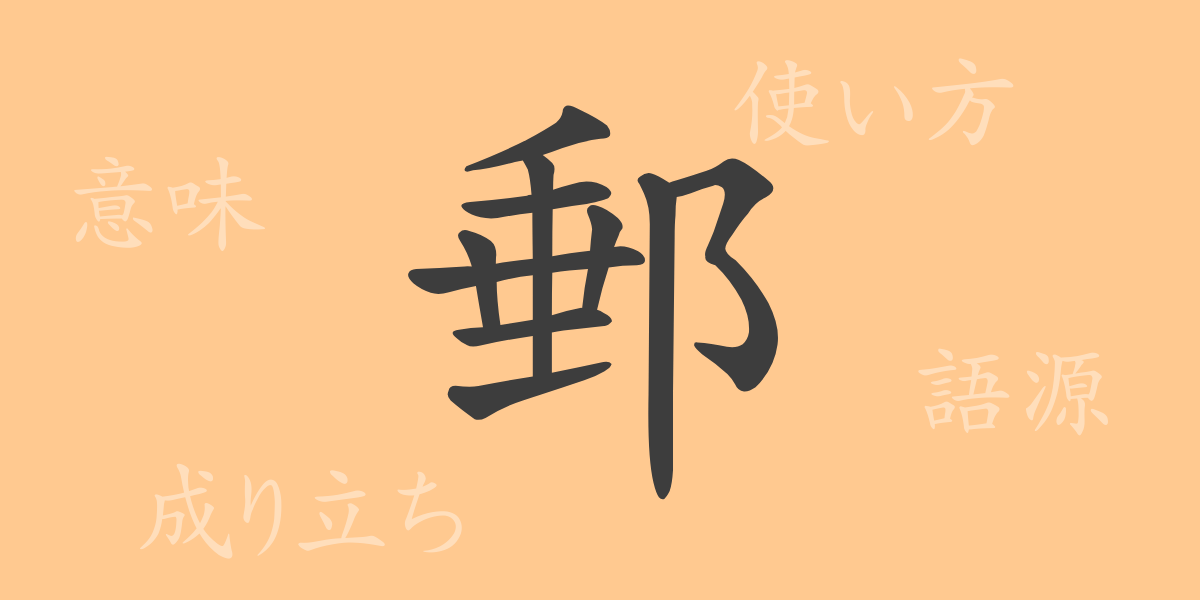The character “郵” (yū) is deeply rooted in Japanese culture and history. This single character encapsulates the system for exchanging information, connecting emotions, and facilitating business. Its importance remains unchanged in modern society, continuing to evolve even as digitalization progresses. In this article, we delve into the origins, meanings, usages, and readings of the kanji “郵” (yū), and explore expressions that use this character to uncover its allure.
Origins of 郵 (yū)
The origin of the kanji “郵” (yū) traces back to ancient China’s transportation and communication systems. This character was born from the relay station system established by government offices, where horses were used to transport documents and goods. Its origin can be considered the very history of communication, born out of the necessity for people to transmit information quickly.
Meanings and Usages of 郵 (yū)
“郵” (yū) refers to the act of sending letters and packages, as well as the systems and facilities for doing so, such as mail and postal services. It is also used in various services and applications related to mail, making it an indispensable part of daily life. For example, “郵便局” (yūbinkyoku, post office), “郵便番号” (yūbinbangō, postal code), and “郵便受け” (yūbinuke, mailbox) are common instances where we encounter this character in our surroundings.
Readings, Stroke Count, and Radical of 郵 (yū)
The kanji “郵” (yū) is a character whose form and functionality have been inherited through a long history.
- Reading: The on’yomi (音読み) is “ユウ” (yū), with no specific kun’yomi (訓読み).
- Stroke Count: It has a total of 11 strokes.
- Radical: The radical is “邑” (むらがまえ, muragame, ゆうへん, yūhen).
Compounds, Idioms, and Proverbs Using 郵 (yū) and Their Meanings
Many compounds and idioms containing “郵” (yū) are related to postal services. For example, “郵便局” (yūbinkyoku) is a facility for handling letters and packages, “郵送” (yūsō) means sending items by mail, and “郵便番号” (yūbinbangō) refers to the code assigned to each region. These compounds are frequently used in everyday communication and form the foundation of social life.
Summary of 郵 (yū)
The kanji “郵” (yū) represents a crucial concept closely tied to people’s lives. It has been used as a means of communication since ancient times, and its role remains unchanged and continues to diversify in modern times. This single character has the power to connect people across distances and to foster cultural and economic development. Even in the digital age, while the form of postal services may change, the underlying human desire for communication remains constant. “郵” (yū) will continue to be an indispensable element in our lives.

























